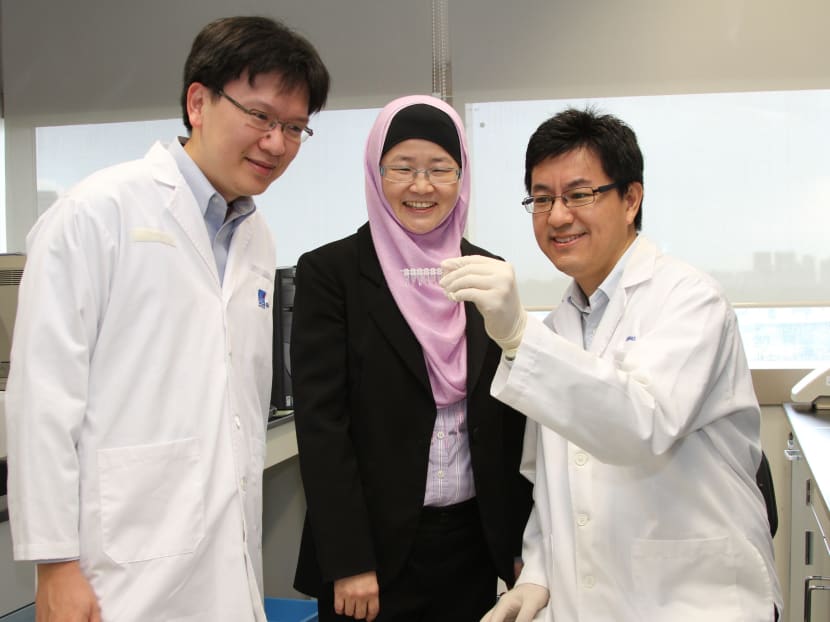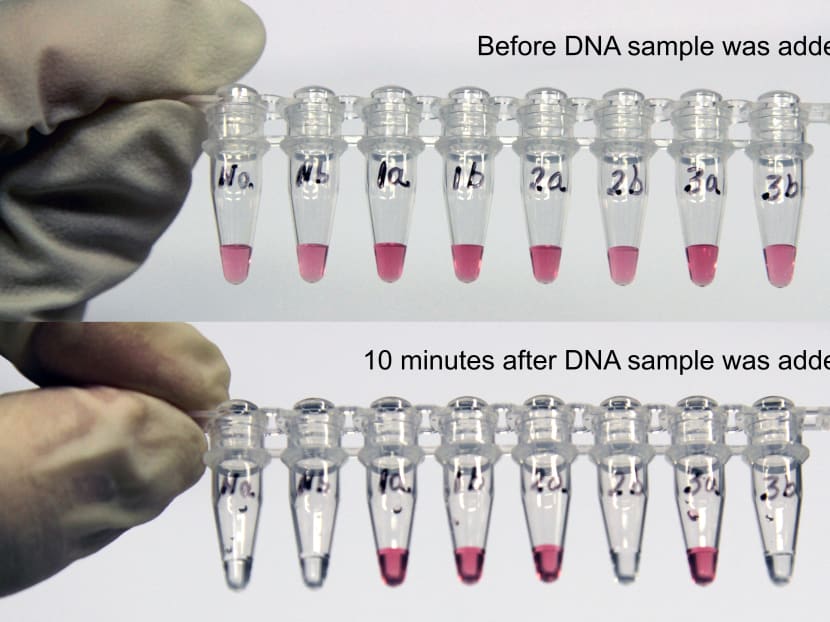Using gold to find genes
SINGAPORE — Local researchers have found a better and faster way to gauge how much blood-thinning drugs a patient needs — using gold nanoparticles.


SINGAPORE — Local researchers have found a better and faster way to gauge how much blood-thinning drugs a patient needs — using gold nanoparticles.
The new test, developed by the Institute of Bioengineering and Nanotechnology (IBN), allows doctors to work out a patient’s genetics through a simple colour-coded test.
Blood-thinning drugs are used to treat conditions such as stroke, heart problems and deep vein thrombosis. The most common of these is warfarin, but tolerance to this drug varies from individual to individual, based on genetic factors.
Doctors can do genetic tests to help them determine how much of the drug to give a patient, but current genetic tests for this are expensive and can take days, meaning that the crucial first dose may be wrong.
The new test makes use of gold nanoparticles that have been designed to recognise three of the most common genetic variants for warfarin response. DNA extracted from blood or saliva of patients is amplified and added to a pink solution of gold nanoparticles.
If any of the three genetic variations is present, the solution will remain pink. But if none of the variations is present, the solution will turn colourless. The colour change takes place within 10 minutes.
The test has been validated by the National Cancer Centre Singapore, the National University Cancer Institute Singapore, and the Institute of Biomedical Sciences in Taiwan, said IBN in a press release yesterday.
IBN executive director Jackie Y Ying said: “Diseases caused by blood clots can be potentially fatal. Genetic testing can improve the treatment of such medical conditions.”
However, the application of this new method is not restricted to only blood-thinning drugs. The nanoprobes can be modified to detect other genetic make-ups as well.
The technology is currently on trial at Singapore’s KK Women’s and Children’s Hospital in relation to carbamazepine — a drug used for epilepsy treatment.
Said Professor Ying: “This nanoprobe technology is highly flexible and can be extended to detect other genetic variations. By making molecular diagnostics information more readily available, doctors will be able to provide personalised treatment that is safer and more effective.”





